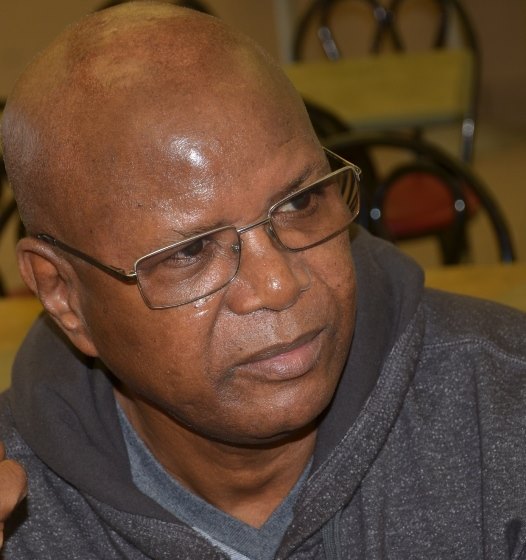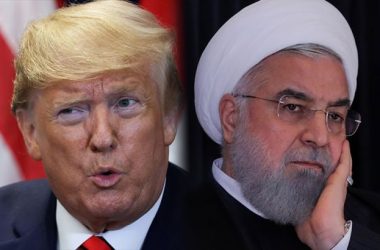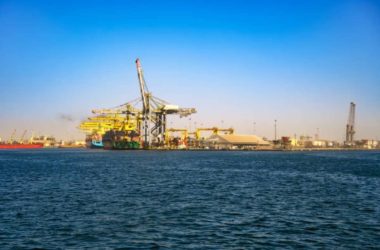 (JollofNews) – We can all recall with some apprehension that during his speech to mark the Gambia’s Golden Jubilee celebrations on 18th February, President Yahya Jammeh reiterated his vision to transform the Gambia into an economic super power which will surpass such economic giants like Dubai, Singapore and Qatar by 2025.
(JollofNews) – We can all recall with some apprehension that during his speech to mark the Gambia’s Golden Jubilee celebrations on 18th February, President Yahya Jammeh reiterated his vision to transform the Gambia into an economic super power which will surpass such economic giants like Dubai, Singapore and Qatar by 2025.
However, even with a cursory glance at the Gambian economy and the prevailing untenable governance and social environment, to hear such a statement in the presence of some foreign heads of state and representatives of the international community was indeed an embarrassment to many Gambians who were in attendance at the Independence Stadium as well as many others wherever they may be. It is quite hard for anyone to imagine what actually compels President Jammeh to be making such untenable pronouncements when the realities on the ground are almost quite the opposite.
Indeed anyone who knows the Gambia, lives there or has been there quite recently would tend to agree with one opposition militant who aptly described such a pledge as the ‘Joke of the Century’. In addition to the poor governance environment resulting in the entire population being treated like hostages by a system which allows them very little freedom to speak their minds, there is hardly anything to indicate that the Gambia can ever get out of among the very bottom of the Least Developed Countries (LDCs) of the world in the next 100 years.
Therefore, rather than becoming an economic super power, with the way things are moving, if the situation is not reversed, it is instead very likely to become a failed state in the not too distant future. Even though one can tend to compare President Jammeh’s autocratic rule to that of the first Prime Minister of Singapore, Lee Kuan Yew which helped to transform that city-state into one of the richest nations in the world, but not only are the two situations completely different in almost every aspect, but we are also living in a completely different era and circumstances. In 1965 when Singapore seceded from Malaysia and became an independent nation, the world was then not the global village that it is today and there was nothing like the internet and social media as we have today.
Therefore, while Prime Minister Lee succeeded to some degree in shielding his people from what was happening in the outside world which weakened their scope and ability to agitate against his tyrannical rule, but he also had the will and the resolve to provide the most basic social amenities and economic opportunities to them. He also no doubt never engaged in any domestic business to compete and disadvantage the local business community but he instead empowered and encouraged them to compete with their counterparts in the sub-region.
However, such qualities can hardly be attributed to President Jammeh who not only is engaged in all types of business, competing directly with the local business community, but at the same time, his regime also seems to be trying to shield the people of the Gambia from what happens in the outside world by completely monopolising the public media. The regime is also doing everything possible to gag the independent media and compel them to either put up or shut up, using high-handed tactics, including harassment and intimidation of journalists and arbitrary closure of their media houses to try and compel them totow the line. While the Jammeh regime has no doubt registered some successes in gagging the media and the people’s freedom of expression, but with the advent of social media, there is very little that it can do to prevent Gambians from accessing relevant information both from within and outside the country.
This is no doubt the reason why there is a multiplicity of Gambian-owned online media whose sole objective is to fill the void for credible news and information for and about the Gambia left by the lack of a free press in the country. Despite all attempts by the regime to block those online media outlets and the intimidation of those who attempt to patronize them, they are still serving their purpose of informing the information-hungry Gambians, both at home and abroad. It is indeed hard to see how the Gambia can be transformed into an economic superpower within the time limit set by President Jammeh when its economy is crumbling, mainly due to lack of investor confidence, and its most basic facilities fast deteriorating. Of course with the poor governance environment, arbitrariness and the almost total lack of respect for the rule of law, it is hard to see how any serious investor would risk putting his/her resources in such an environment.
It is therefore not a surprise that even the very few foreign businesses that had established in the country are now beginning to pull out rather than consolidate. This is apparently because they have not been able to compete with President Jammeh’s numerous business ventures as they are subjected to heavy taxation and other bureaucratic hurdles to which his own business interests are not subjected to, while at the same time, he gets ‘free labour’ from both the security forces and ordinary Gambians who are compelled by circumstances to work for him. At the same time, even the very personal security of the investors is not fully guaranteed and there had been recent examples of both foreign and local business owners being subjected to arbitrary arrests and detentions, with some of them even being arbitrarily deported without the matter passing through the normal judicial system.
Even the very fact that the Jammeh regime recently prevented UN Special Rapporteurs against torture and extra-judicial executions from access to some parts of the Mile Two Central Prison in Banjul as well as its failure to attend the adoption of the Universal Periodic Review (UPR) on the Gambia in Geneva on the 26thMarch during the session of the UN Human Rights Council, are clear indications of the regime’s lack of respect for its international obligations. Such action will no doubt help push the Gambia further into isolation and consolidate its present unenviable position of being the pariah state of the sub-region and eventually become irrelevant to international power politics.
We can all recall that the Gambia used to host correspondents of the major foreign news media such as the BBC, VOA, SABC etc, and it was relatively well covered on the international news scene, but nowadays, they have all been chased out and the Gambia is hardly mentioned by them. As a result, the present situation in the country can quite easily be comparable to North Korea where only the great leader counts and everyone else is irrelevant.
Therefore, as long as President Jammeh carries on with his rantings against the Gambia’s main development partners and his regime continues with its systematic arbitrary arrests and incommunicado detentions, its harassments and persecutions of perceived gays and lesbians as well as the intimidation and harassment of critics and opponents of the regime, most of it being done outside the ambit of the law, it is hard to see how this country can realize any meaningful development, let alone becoming an economic super power.





